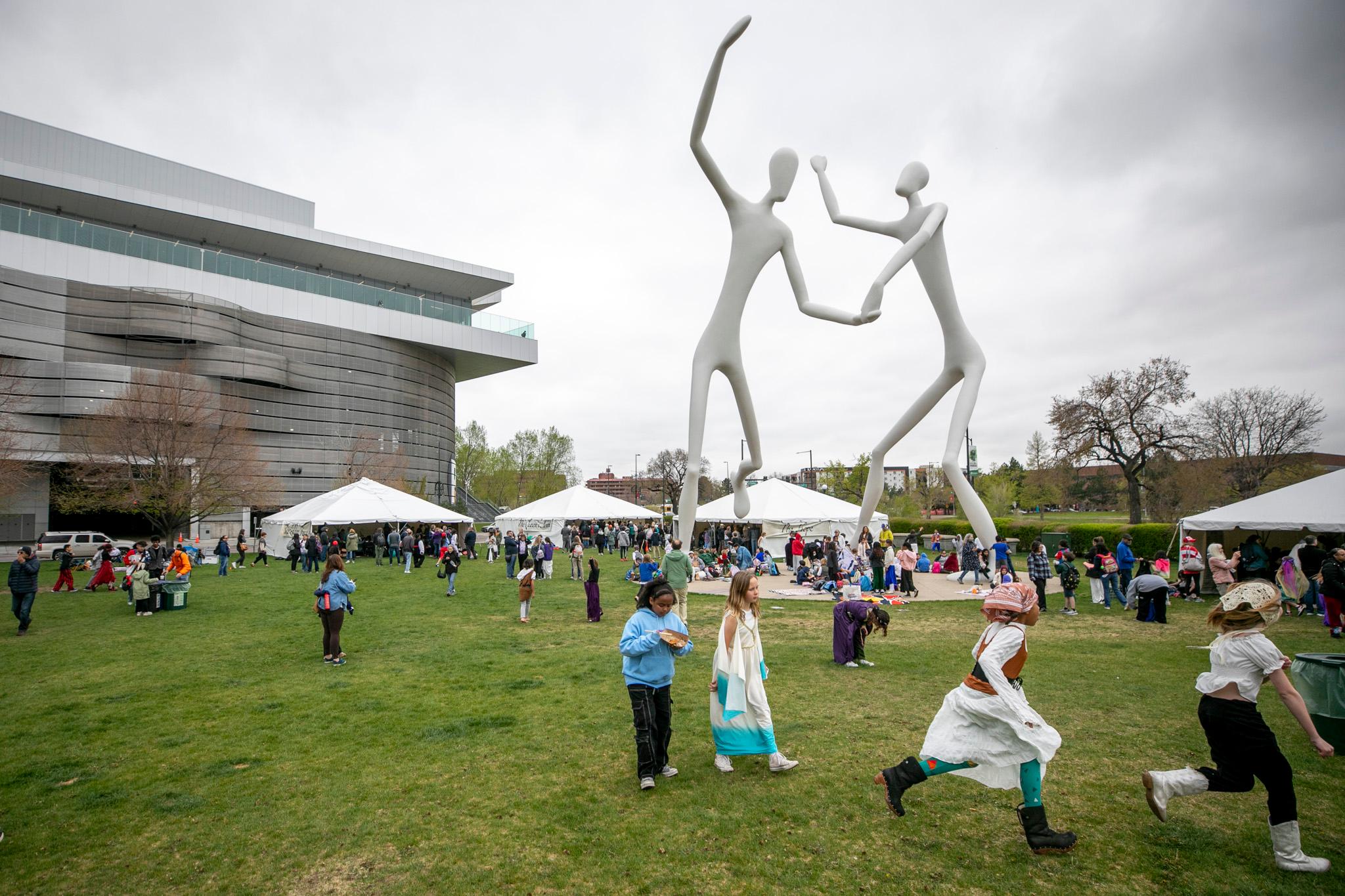A who’s who of Denver cultural giants, developers, construction industry leaders and nonprofits are donating big to Mayor Mike Johnston’s Vibrant Denver bond campaign.
Vibrant Denver Bond, the committee raising money for the effort, had brought in more than $1 million as of the end of September.
The opposition to the bond, Citizens for NO New Debt, had raised just over $3,000. The group argues that Denver should avoid incurring debt and hold off on starting new projects until the city can afford to do the work without bonds.
Taxpayer-funded cultural groups are among the biggest donors.
The five regional taxpayer-funded Tier One Scientific and Cultural Facilities District institutions – the Denver Art Museum, the Denver Museum of Nature and Science, the Denver Zoo, the Denver Center for the Performing Arts, and the Denver Botanic Gardens – have each contributed $50,000.
Despite already receiving tax dollars, these groups see how more money, through debt, could help them better achieve their goals.
While nonprofits are banned from engaging in political campaigning for or against candidates,
“IRS rules allow for nonprofit organizations to engage in non-partisan activities and legislative advocacy,” DCPA spokesperson Suzanne Yoe wrote.
“If approved, the Vibrant Denver bond would, among other things, enhance safety and security for the Helen G. Bonfils Theatre Complex, which is a city-owned building,” Yoe added.
“It is an opportunity for voters to approve a wide range of initiatives that will improve Denver’s safety and infrastructure, community center resources and upgrades at cultural organizations, including the Gardens,” wrote Botanic Gardens spokesperson Erin Bird. “And this will all be done without raising taxes!”
“For the Denver Art Museum, the funds will, in part, help improve accessibility across the campus, allowing us to be an even more welcoming and accessible museum for everyone,” wrote Andy Sinclair, a spokesperson for the DAM. “Furthermore, improvements in the infrastructure and amenities throughout Denver will draw more visitors and elevate the standing of our city.”
Other donors include nonprofits, developers and more.
The Denver Health champions at Heart of Denver, the tourism boosters at Visit Denver and the national trade group Associated General Contractors each gave $50,000. SEMA Construction contributed $40,000.
The biggest individual donor to the effort is philanthropist and businessman Larry Mizel, who has contributed $60,000.
Other donors include:
- Real estate and construction companies that do big business in the city like McWhinney and Delwest
- Affordable housing developers like Mercy Housing, Susan Powers of Urban Ventures, and the Urban Land Conservancy
- Boosters such as the Downtown Denver Partnership and Downtown Development Authority head Bill Mosher
- Lobbyists such as Josh Hanfling and the Pachner company
- Nonprofit executives with the Colorado Coalition for the Homeless
Britta Fisher, the CEO of the coalition, said she gave to the cause because the bond funding makes sense and helps the city “collectively do good things in a big way.”
But Vibrant Denver’s most prominent spokesperson has not yet donated to the cause: the mayor himself.
What’s the deal with the bond again?
The Vibrant Denver bond would have property owners take on $950 million in debt for key infrastructure and civic projects if it passes the November election.
Voters will be asked to approve the debt funding in five separate ballot measures. Those include infrastructure and facilities for:
- Transportation and mobility
- Parks and recreation
- Health and human services
- Housing and shelter
- Cultural institutions, libraries and more
If passed, no new taxes would be adopted. But already existing property taxes would be extended by several years and could cost voters up to nearly $2 billion in total, including in interest paid to banks.
If rejected, the city would continue to collect property taxes at the current rate and use them to pay down existing debt at a faster rate.











